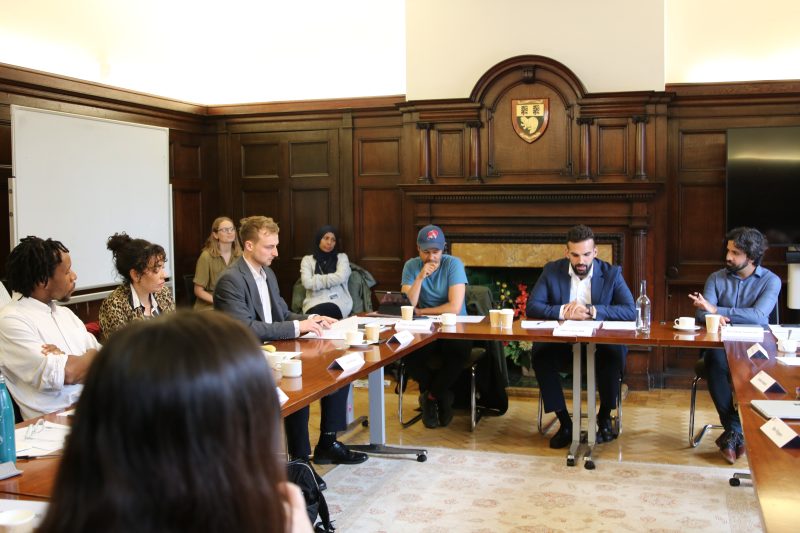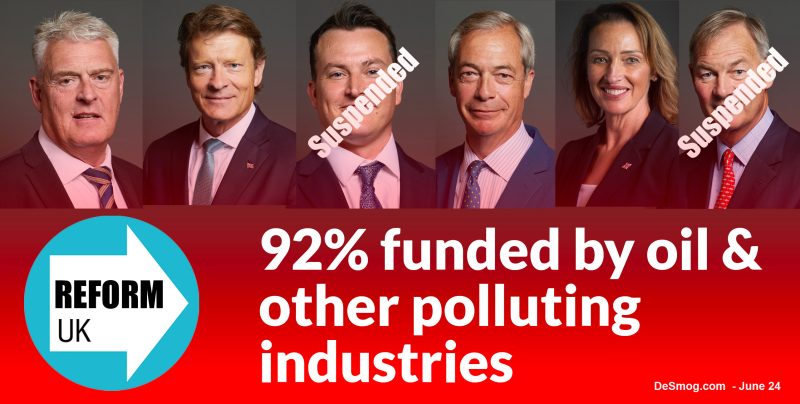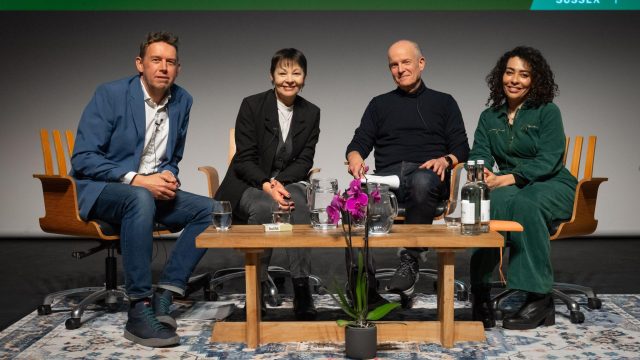"You can only move as fast as trust” and other hits
Lessons from where community engagement and policy meet at a London School of Economics and Greater London Authority Roundtable

I was luckily enough to join a cracking bunch of people as part of a roundtable hosted by the LSE and the GLA “How do we connect climate policy to Londoners’ priorities for social, racial and economic justice?”
There were so many great contributions but sharing some insights that resonated with me from what we are hearing from our partners across the globe:
People are over-consulted and under-heard
We have long advocated for participatory decision making. But it’s not enough for people to just participate. Instead, their needs should be reflected in the actual outcomes. Consultation processes need to be flexible enough to respond to clear recommendations, even if they are not the original purpose of the consultation, and brave enough, with enough space, to respond to big emotions.
Which ties into...
The importance of building community
We need to invest in people, "soft infrastructure", long term relationships and building communities. Without social fabric, or the interconnections between people, values, relationships and institutions it is much harder to connect policy ideas with the needs of people and have them included in these decisions.
Austerity policies have made the work of transformation so much harder and while the language of climate change is fraught with urgency perhaps "the quick way" here is the "long way" of community building. We can’t go straight to technical solutions and narrow trade–offs as this doesn't win a mandate or sustainable support, it enables backlash. We need to move together to move far on climate change
Don’t bury the lead (or hide the most important part of the story)
Climate communications are notorious for not connecting the dots or only telling part of the story. As an aside - only in a conversation with climate policy professionals would I hear the term “co-benefits”.
What are people’s priorities and how do we frame the action available to them in these terms? While we may want to talk about climate interventions, some people will be more concerned about making ends meet at the end of the month and having a warm home. We need to find the words, images and frames that speak most effectively to peoples priorities - start where they are – and then hammer on those messages until they cut through. Centre people rather than our policy specialism.
We need better policy
Support for tackling climate change isn’t just a communication and engagement question, it is a social and economic policy problem. Designing policies that deliver real benefits to people by addressing inequalities and poverty is absolutely critical. The transition is inevitable – but to make it happen quickly and robustly, we need ordinary people to be on board, not resentful. Securing buy-in requires creating a sense of hope and agency, the best way to do this is to address some of the injustices in our current economic model.
Show me the money
We also need to be better at talking about money. If we don’t talk about how change is funded, then the disinformation spread by fossil fuel companies takes hold. At a time when people think the economic system is rigged - and they are up for economic proposals like wealth taxes - there is a mandate to be won and a real prize for political bravery. Instead the political centre seems to be offering only incremental improvements on the same old policy gruel, which is serving so many so badly, with a decline in living standards. We can be creative in how we fund change but we also need to get much better at exposing the hidden costs of climate change.

Designed features
It is no coincidence that those who want to maintain the economic status quo and stop the transition to a low carbon economy are the same people. They are investing heavily in political parties, podcasts and platforms to undermine the integrity of our information environment and muddy the waters with “delayism” and other lies increasing the friction for change.
It’s not enough for us to just do better messaging and policy, we need to address the fact that the democratic liberal information foundations on which we are making our case have moved. The digital media landscape is diminishing the importance of climate, human rights, tolerance, community and instead promoting polarisation, outrage and populism. We need to make these connections and choices visible, we need to make the playing field level.
Innovation
We don’t have the institutions, organisations and networks that we need, yet. With the advent of cheap AI and the proliferation of cheap communications tools there is an opportunity to build more and better relationships. We need to better understand and overcome the biases of this political and media environment. We need to embrace uncertainty, re-evaluate "ways of doing thins" and question sacred cows. In short we need to try, fail and improve ad nauseum. Thinking differently about what success is in terms of metrics and embracing new ways of planning for these mediums. On social increasingly speed is all- fast, faster and fastest is best. Sign off and brand guidelines should be sacrificed as we adapt to the needs of this environment.
We need a dual approach, we need to regulate these spaces to rebalance the playing field AND we need to experiment to identify what works to cut through.
We can learn from Zohran Mandani, Jasmine Crockett, and Vanessa Nakate. We need to build solildarity AND we need to take on our opponents. Identifying how we support political bravery, build power and identifying the leverage points to undermine the strategic interventions of those who are all in on maintaining the inequity of our economy and nurturing grievances to do so.
- Jean McLean, Green Economy Coalition


